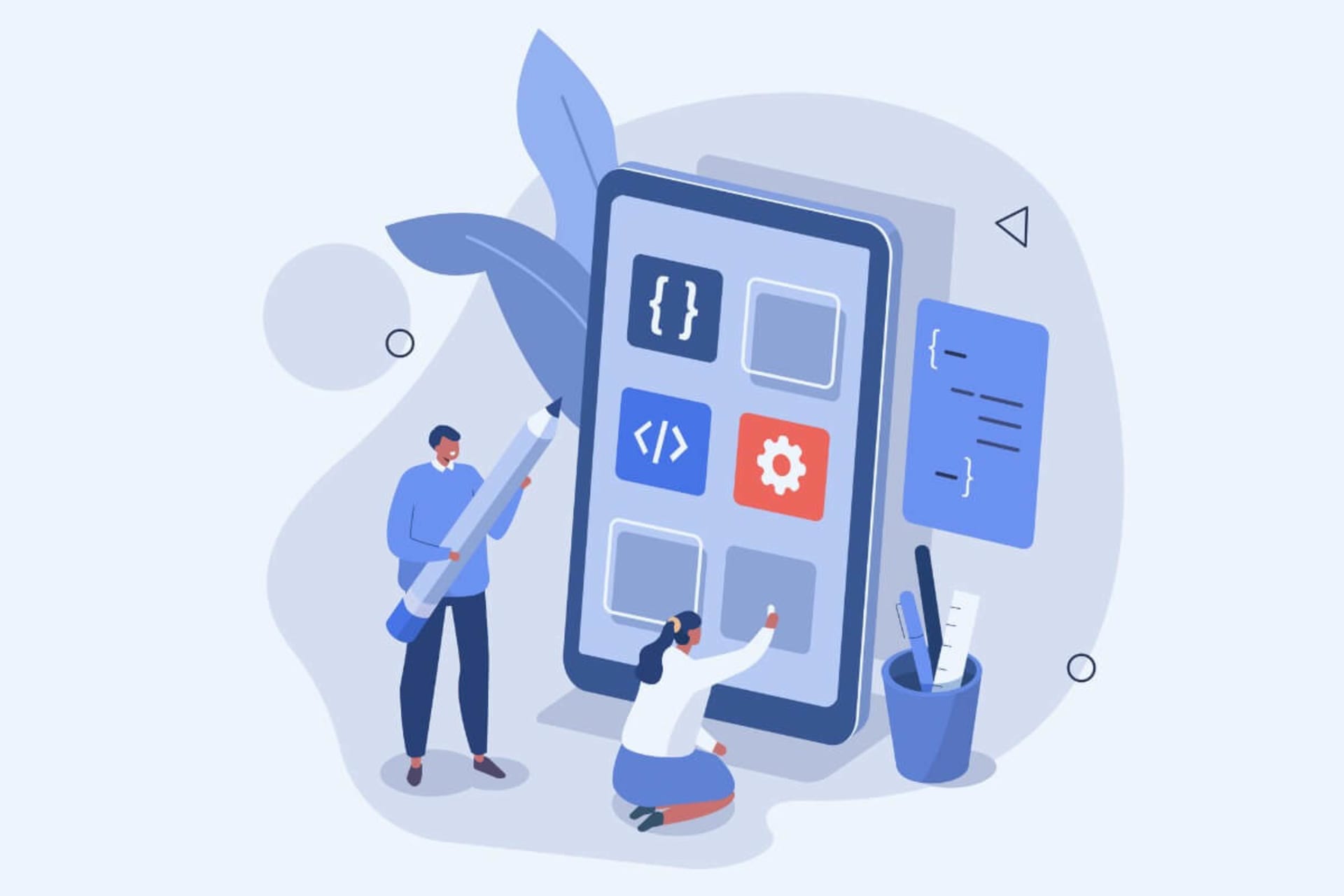- Home
- Technologies
- Ionic
- Hire Ionic Developers
Hire Ionic Developers
Hire vetted Ionic talent.
Our top 1% of tech talent has already undergone a rigorous vetting process. Get bilingual, nearshore Ionic developers on your team within 2 weeks.
500+ companies rely on our top 1% tech talent.
No time to find the top talent yourself? Skip the hassle of recruitment.




The Ultimate Guide for Hiring Ionic Developers
Whether you need Ionic app development for internal useor an app that works across multiple platforms, hiring the right Ionic developer is non negotiable. The real challenge? Finding skilled experts to handle complex integrations and make sure your app isn’t compromised by bad code. With experience sourcing tech talent across 100+ industries, we know what separates a good developer from a great one.
This guide will help you make an informed decision by outlining things to consider before hiring, must have technical skills and best interview questions to ask. Hiring the best Ionic developer is critical, and confidence in your choice is key.
Before You Begin
Project or Team Requirements
Think about the project for which you need an Ionic app developer. Is it a complex customer service app or a slick, fast loading e-commerce platform? Then consider your team’s needs. Do you need someone who’s great at integrating APIs and 3rd party services? Or an expert in frameworks like Angular or React? These project requirements will guide you to the right hire.
Niche Experience in Ionic
Top developers in the Ionic framework have the niche skills you need. You may need developers skilled in areas like custom native plugins, payment gateways or building PWAs with offline functionality. Define your project’s focus areas and review portfolios to find developers with the exact skills your team needs.
Portfolio and References/Testimonials
Hom in on portfolios that show versatility and adaptability across different industries. Review the technical depth of their past work to see how they work. Also pay attention to testimonials that highlight problem solving skills and collaboration with teams or stakeholders. These show a developer’s ability to handle complex projects under pressure.
Culture Fit
When reviewing past work or interviewing, notice how they communicate. Does their style fit your team’s approach, whether it’s collaborative discussions or independent work? Also consider whether they share your company’s values and work ethic, like delivering quality work and meeting deadlines.
Industry Experience
It’s worth prioritizing Ionic developers with industry experience, especially if you’re in healthcare or finance where compliance is strict. Developers with this background know how to build apps that meet regulations. They can also create user experiences that truly connect with your target audience.
17 Skills Every Ionic Developer Should Have
Ionic is a framework designed for building cross platform mobile apps and web technologies. To create dynamic and interactive app components, developers need strong technical skills in programming languages and frameworks like JavaScript. But technical expertise isn’t enough—pairing it with soft skills like problem-solving is just as critical to resolving bugs quickly.
By hiring Ionic developers, you’re investing in a professional who can deliver high-quality, user-friendly apps while saving you money in the long run. Their well-rounded skill set reduces the need for extra training or costly fixes.
Technical Skills to Look for in Your Ideal Ionic Developer
1. HTML Experience
HTML is a popular markup language for building web pages and applications, organizing everything from text to buttons. In the Ionic framework, it plays a key role in structuring the app's UI. Ultimately, HTML helps make styling, debugging, and maintaining a clean layout much easier.
2. Mastery of CSS
CSS is a style sheet language that works with HTML to style elements like colors, fonts, and layouts. It helps skilled Ionic developers customize designs to match your project’s goals and branding. It’s great for creating responsive and visually polished app interfaces.
3. JavaScript Knowledge
JavaScript is a programming language that adds interactivity to web pages and apps. In Ionic app development, it can be used to handle form submissions and interact with APIs. It also helps build custom features like sliding menus and real-time updates, making your app more dynamic and functional.
4. Angular Expertise
As a core framework used to create mobile apps, Angular works with Ionic to implement built-in features like form handling and HTTP services. When it comes to your project, a developer skilled in Angular can improve app performance with features like change detection and lazy loading. This framework ultimately makes it easier to build scalable apps with long-term reliability.
5. Experience with Cordova/Capacitor Plugins
Cordova is a powerful framework, and Capacitor is a runtime. They let web applications tap into native device features like GPS and file systems through plugins. By using these plugins, skilled Ionic developers can build apps that feel just like native ones, boosting performance, user experience, and functionality.
6. RESTful API Integration
RESTful APIs connect web or mobile apps to external services. Take a weather app, for example. It uses an API to pull in real-time data from external sources. Experienced Ionic developers can tap into this for real-time updates or pull personalized data for better customer experiences.
7. Testing and Debugging
Having dedicated Ionic app developers skilled in testing and debugging is key to making sure your app works as it should. Using methods like unit or end-to-end testing throughout the development process allows them to catch bugs early and reduce glitches.
8. Performance Optimization
Performance optimization makes your feature rich app faster, more efficient, and responsive. An experienced Ionic framework developer can pinpoint areas that may cause delays or unresponsiveness. They can use this data to apply custom solutions to reduce resource use and maintain steady performance across platforms.
9. Responsive Design
No matter what device or screen size your users are on, your app’s UI should adjust accordingly. An Ionic developer needs to be comfortable using flexible grids and fluid layouts to make sure it works across different platforms. It delivers an engaging experience and simplifies maintenance with a single codebase.
10. Progressive Web App (PWA) Development
PWAs are web apps that deliver a native app-like experience and work offline. Having someone with expertise in Ionic is perfect for building PWAs, as it provides built-in tools based on HTML and CSS (the foundation for PWAs). With Ionic, developers can create cross-platform apps more efficiently, cutting down development costs by using one framework.
11. Cross-Platform Debugging
Different platforms can render UI elements differently. Hiring an Ionic developer with cross-platform debugging skills means your app will work well on Android, iOS, and the web. They’ll be able to tackle issues like slow load times or unresponsive elements with minimal disruption.
12. Authentication and Security
Strong authentication and security keep sensitive information, like login credentials and payment details, safe. For an Ionic developer, knowing how to set up token-based authentication and HTTPS keeps users’ identities protected and meets industry standards. This expertise helps build trust with users, increases client retention, and prevents data breaches or cyberattacks.
13. Database Management
Apps rely on data storage and retrieval to keep everything organized for users. If an Ionic app developer isn’t experienced in this area, it can lead to issues like data loss or security problems. A good database management system helps avoid bottlenecks and easily scale the app with a well-structured design.
Soft Skills to Look for in Your Ideal Ionic Developer
14. Attention to Detail
Ionic gives developers pre-built templates, but they still need to customize and configure them to fit the app’s specific needs. Paying attention to detail is key. Small mistakes, like misconfigured components, can lead to issues that are tough to fix later.
15. Openness to Feedback
Projects require ongoing refinement, and an Ionic developer should be open to collaborating with the team and accepting feedback. For example, if a button style doesn’t fit the app’s theme, the developer should adjust it to align with the brand and optimize client satisfaction.
16. Leadership
Taking ownership of a project helps a developer stay on track and meet deadlines. An Ionic expert with leadership skills manages project management, drives innovation, and consistently delivers quality work.
17. Stress Management
With tight deadlines or changing project requirements, you'll need an adaptable Ionic framework developer who stays calm under pressure. Someone who can think clearly in stressful situations and keeps communication flowing within the team will keep the project on track.
9 Questions to Identify Top Ionic Developers
When interviewing Ionic developers, it's important to ask questions that first assess the candidates' technical skills and knowledge. Employers will also usually conduct a coding test to further assess specific on-the-job knowledge.
The following set of questions aims to uncover not only the developer's technical knowledge but also their problem-solving abilities, teamwork, communication skills, and adaptability—all crucial traits for success in a collaborative environment.
Here are a few examples of technical interview questions:
1. How have you used Ionic’s lifecycle events in your projects?
In one of my projects, I used “ionViewWillEnter” to fetch real-time data for a dashboard every time a user navigated to it. This way, the information was always fresh and relevant. I also used “ionViewWillLeave” to reset temporary variables, which helped free up memory, especially in an app where users frequently switched screens.
These lifecycle events helped keep the app efficient and responsive. They allowed me to manage resource usage while providing users with up-to-date data as they moved between pages. This approach improved performance and user experience.
2. Have you built PWAs with Ionic, and how did you enable offline functionality?
Yes, I’ve worked on PWAs with Ionic. To add offline functionality, I used Service Workers to cache key assets like CSS and JavaScript. I also set up a fallback to display cached data when the network was down. This worked well for an e-learning app where users needed offline access to videos and notes.
3. Can you give an example of integrating a third-party API into an Ionic app?
In a project for an Ionic e-commerce app, I worked on integrating Stripe as the payment gateway. I used RESTful API endpoints to process payments and verify transactions. To keep things secure, I set up token-based authentication so that sensitive payment details were handled only on the server side.
I also built custom UI components using Ionic’s reusable elements to keep the app’s design consistent with its branding. This integration made the payment process quick and secure, which improved the user experience and build customer trust.
4. What testing tools do you use for Ionic apps, and why?
I use Jasmine and Karma for unit testing in Ionic apps because they make it simple to test individual components and services. For end-to-end testing, I like using Cypress or Protractor to simulate user interactions and check that the app’s workflow works as expected.
For example, in a recent fast food delivery app project, I used these tools to make sure the menu filters worked properly and that users could track their orders without any issues. The main goal was to make sure the app performed reliably across all devices.
5. How do you handle routing and navigation in Ionic?
In Ionic, I work with Angular's Router module to handle navigation by setting up routes in the “app-routing.module.ts file” to connect paths to their components. For dynamic navigation, I use “NavController” to push and pop pages. In one project, I improved performance with lazy loading, so modules were only loaded when needed. I also added route guards to restrict access to specific pages, which made the app more secure and improved the user experience.
6. Can you share an example of a challenging bug you encountered in an Ionic app and how you solved it?
Facing challenges shows how well a candidate can problem-solve, take initiative, and pay attention to detail. A strong answer should highlight their logical approach, resourcefulness, and how they stay calm under pressure to find effective solutions.
7. Have you had to learn a new tool to complete an Ionic project quickly?
Technology is always changing, and dedicated Ionic app developers should stay on top of framework and plugin updates. How a candidate approaches this question shows their ability to adapt and learn quickly, even under tight deadlines. Their answer also gives further understanding into their mindset toward tackling new challenges and growing their skills.
8. How do you typically handle feedback from clients or team members?
This question helps gauge how well the candidate handles constructive feedback, which highlights their ability to collaborate effectively. It also gives insight into their communication style and how they manage relationships with clients and stakeholders—a critical skill for keeping projects on track and maintaining strong working partnerships.
9. Can you share a project you’re proud of and explain what made it stand out?
The candidate’s response showcases their passion, creativity, and ability to take initiative. It can give you a glimpse into their work ethic and how they approach achieving goals. You’ll also get a sense of their accomplishments and how they define success in their projects.
Frequently Asked Questions
1. How can you assess whether an Ionic developer is skilled in managing complex integrations?
Take a look at their portfolio for mobile and web development projects that include integrations with APIs, custom features, or third-party plugins. In the interview, ask questions like, "Can you share a project where you worked with multiple APIs and handled unexpected challenges?" Strategic questions help you get a clear sense of their problem-solving skills and real-world experience.
2. What are the key differences between hiring a nearshore Ionic developer and building an in-house team?
Nearshore developers, located in nearby time zones, facilitate real-time collaboration and swift problem-solving. This proximity allows for effective communication and cultural alignment. Additionally, nearshore developers offer cost-effective solutions, providing the flexibility to scale their involvement based on project demands.
In contrast, in-house teams offer deeper integration within the company. However, maintaining an in-house team entails higher expenses, including salaries, benefits, and office infrastructure. The recruitment process can also be time-consuming, potentially delaying project initiation.
3. What are the best ways to evaluate an Ionic developer’s technical skills before making a hiring decision?
Along with reviewing their portfolio, asking scenario-based technical questions in interviews is a great way to evaluate their problem-solving skills. It helps you see how they’ve handled complex situations and highlights their accomplishments. Coding tests are also helpful in understanding their approach to real-world issues in Ionic app development, like resolving cross-platform UI problems.
4. Should you prioritize Ionic developers with specific framework expertise?
To find the right fit for your software dedicated team, focus on candidates with experience in the framework your project uses, like Angular, React, or Vue.js, which are all supported by Ionic. For example, if your app relies on Angular’s lazy loading, someone with Angular expertise will implement new features and resolve issues in your app more effectively.
5. What are the benefits of working with remote Ionic developers?
Remote Ionic developers bring extensive knowledge from around the globe to your web or mobile app project. This approach reduces expenses associated with on-site management. Plus, outsourcing software development to remote teams often operates independently, minimizing administrative burdens and allowing you to allocate more resources to other software development needs.

- Hire Ionic Developers
How Businesses Can Overcome the Software Development Shortage
BairesDev Ranked as one of the Fastest-Growing Companies in the US by Inc. 5000










